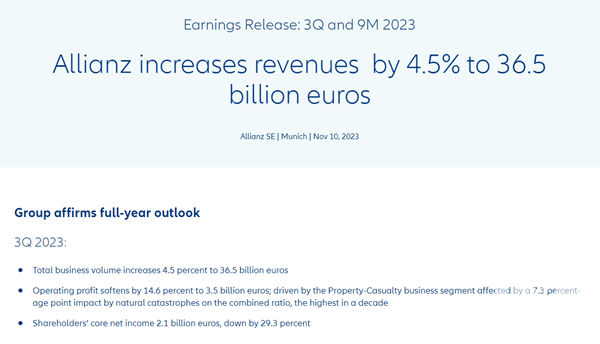October 16, 2023 - Between 3:00 PM and 3:30 PM
In a whirlwind of activity lasting just 30 minutes, the cryptocurrency world was set ablaze when CoinTelegraph, a leading media outlet in the industry, erroneously reported BlackRock's request for a Bitcoin Exchange-Traded Fund (ETF) approval from the U.S. Securities and Exchange Commission (SEC). Within this short span, Bitcoin experienced a rollercoaster ride, soaring from $28,000 to $30,000 before reverting to its original price. What exactly transpired, and what are the implications?

Background
CoinTelegraph's official Twitter account, a highly influential source within the crypto community, erroneously tweeted news of the SEC approving BlackRock's Bitcoin ETF. This misinformation swiftly spread across reputable platforms, including Reuters, Benzinga, Wu Blockchain, Fox Business, and Bloomberg, causing a rapid surge in Bitcoin's price to nearly $30,000.
In reality, CoinTelegraph's report was inaccurate. BlackRock's iShares request for a Bitcoin ETF approval is still under review by the SEC. The excitement among crypto investors stems from the fact that BlackRock, the world's largest asset manager, aims to introduce a financial product backed by Bitcoin. It's worth noting that since 2013, all requests for Bitcoin ETFs have been denied by the SEC, primarily due to concerns about market manipulation and the relative illiquidity of Bitcoin across various platforms.
Market Response and Speculative Impact
The sudden surge in Bitcoin's price was a direct consequence of the erroneous report. Cryptocurrency enthusiasts had high hopes for the potential approval of a Bitcoin ETF, especially given the ongoing legal battles between industry leaders and the SEC. If approved, an ETF backed by Bitcoin could serve as a bridge for many individuals, companies, and funds seeking exposure to Bitcoin.
Implications and Questions
The fascination with Bitcoin ETFs, particularly spot ETFs, raises important questions. While a genuine Bitcoin can be exchanged openly due to the nature of its blockchain protocol, the clamor for ETFs poses a perplexing query: Why invest time and energy in alternative ways to access BTC, especially when companies like Coinbase, a publicly traded entity, already facilitate Bitcoin exchanges?
The allure of ETFs, especially spot ETFs, in the crypto market remains a puzzle. Will these instruments truly reassure risk-averse investors about entering the crypto realm? Will they encourage institutional players to acquire Bitcoins through these conventional financial routes? Or is this merely a manifestation of human impulses and desires, including the urge to covet the unattainable?
The answer to these questions remains elusive, and only time will reveal the true impact of Bitcoin ETFs on the cryptocurrency landscape.
In a whirlwind of activity lasting just 30 minutes, the cryptocurrency world was set ablaze when CoinTelegraph, a leading media outlet in the industry, erroneously reported BlackRock's request for a Bitcoin Exchange-Traded Fund (ETF) approval from the U.S. Securities and Exchange Commission (SEC). Within this short span, Bitcoin experienced a rollercoaster ride, soaring from $28,000 to $30,000 before reverting to its original price. What exactly transpired, and what are the implications?

Background
CoinTelegraph's official Twitter account, a highly influential source within the crypto community, erroneously tweeted news of the SEC approving BlackRock's Bitcoin ETF. This misinformation swiftly spread across reputable platforms, including Reuters, Benzinga, Wu Blockchain, Fox Business, and Bloomberg, causing a rapid surge in Bitcoin's price to nearly $30,000.
In reality, CoinTelegraph's report was inaccurate. BlackRock's iShares request for a Bitcoin ETF approval is still under review by the SEC. The excitement among crypto investors stems from the fact that BlackRock, the world's largest asset manager, aims to introduce a financial product backed by Bitcoin. It's worth noting that since 2013, all requests for Bitcoin ETFs have been denied by the SEC, primarily due to concerns about market manipulation and the relative illiquidity of Bitcoin across various platforms.
Market Response and Speculative Impact
The sudden surge in Bitcoin's price was a direct consequence of the erroneous report. Cryptocurrency enthusiasts had high hopes for the potential approval of a Bitcoin ETF, especially given the ongoing legal battles between industry leaders and the SEC. If approved, an ETF backed by Bitcoin could serve as a bridge for many individuals, companies, and funds seeking exposure to Bitcoin.
Implications and Questions
The fascination with Bitcoin ETFs, particularly spot ETFs, raises important questions. While a genuine Bitcoin can be exchanged openly due to the nature of its blockchain protocol, the clamor for ETFs poses a perplexing query: Why invest time and energy in alternative ways to access BTC, especially when companies like Coinbase, a publicly traded entity, already facilitate Bitcoin exchanges?
The allure of ETFs, especially spot ETFs, in the crypto market remains a puzzle. Will these instruments truly reassure risk-averse investors about entering the crypto realm? Will they encourage institutional players to acquire Bitcoins through these conventional financial routes? Or is this merely a manifestation of human impulses and desires, including the urge to covet the unattainable?
The answer to these questions remains elusive, and only time will reveal the true impact of Bitcoin ETFs on the cryptocurrency landscape.




Copyright © 2023.Yooke studio All rights reserved.
PKWEEKLY NEWS












